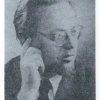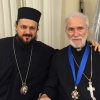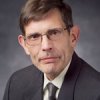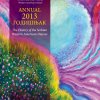Father Emilian Glocar
Originally baptised in the Roman Catholic faith, after the death of his parents, he was converted to Holy Orthodoxy under Bishop Gorazd, Bishop of the Orthodox Diocese in Czechoslovakia. The conversion took place in the Vrdnik Monastery of Ravanica at the hands of Fr. Makarije Djordjevic.
After elementary school, Emilian became a student of the Serbian Orthodox Seminary in Sarajevo from 1923 to 1928. Having graduated from the Seminary, he undertook post-graduate theological studies at the University of Belgrade, from 1929 to 1934.
In 1930, Emilian married a Serbian girl, Bosiljka Parlaceva, in the Cathedral Church of Sremski Karlovci.
On March 16, 1930, he was ordained to the Holy Diaconate at the St. Nicholas Cathedral by Dr. Irinej (Djordjevic), the Vicar-bishop of Belgrade-Karlovci. On March 23,1930, he was ordained to the Holy Priesthood.






